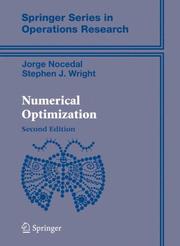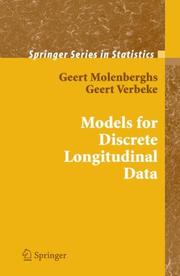| Listing 1 - 10 of 12 | << page >> |
Sort by
|

ISBN: 0691091544 1680158961 9786612157196 1400825113 1282157191 140081460X 9781400814602 9781400825110 9781680158960 9781282157194 Year: 2002 Publisher: Princeton, N.J. ; Oxford : Princeton University Press,
Abstract | Keywords | Export | Availability | Bookmark
 Loading...
Loading...Choose an application
- Reference Manager
- EndNote
- RefWorks (Direct export to RefWorks)
Recognizing that robust decision making is vital in risk management, this book provides concepts and algorithms for computing the best decision in view of the worst-case scenario. The main tool used is minimax, which ensures robust policies with guaranteed optimal performance that will improve further if the worst case is not realized. The applications considered are drawn from finance, but the design and algorithms presented are equally applicable to problems of economic policy, engineering design, and other areas of decision making. Critically, worst-case design addresses not only Armageddon-type uncertainty. Indeed, the determination of the worst case becomes nontrivial when faced with numerous--possibly infinite--and reasonably likely rival scenarios. Optimality does not depend on any single scenario but on all the scenarios under consideration. Worst-case optimal decisions provide guaranteed optimal performance for systems operating within the specified scenario range indicating the uncertainty. The noninferiority of minimax solutions--which also offer the possibility of multiple maxima--ensures this optimality. Worst-case design is not intended to necessarily replace expected value optimization when the underlying uncertainty is stochastic. However, wise decision making requires the justification of policies based on expected value optimization in view of the worst-case scenario. Conversely, the cost of the assured performance provided by robust worst-case decision making needs to be evaluated relative to optimal expected values. Written for postgraduate students and researchers engaged in optimization, engineering design, economics, and finance, this book will also be invaluable to practitioners in risk management.
International financial management --- 519.83 --- 681.3*G16 --- Risk management --- -Algorithms --- 658.155 --- Algorism --- Algebra --- Arithmetic --- Insurance --- Management --- Theory of games --- Optimization: constrained optimization; gradient methods; integer programming; least squares methods; linear programming; nonlinear programming (Numericalanalysis) --- Mathematics --- Foundations --- 681.3*G16 Optimization: constrained optimization; gradient methods; integer programming; least squares methods; linear programming; nonlinear programming (Numericalanalysis) --- 519.83 Theory of games --- Risk --- Decision making --- Algorithms. --- Mathematical models. --- Algorithms --- Mathematical models
Book
ISBN: 1282289233 9786612289231 0080956343 9780080956343 9781282289239 0120932504 9780120932504 Year: 1976 Volume: v. 125 Publisher: New York Academic Press
Abstract | Keywords | Export | Availability | Bookmark
 Loading...
Loading...Choose an application
- Reference Manager
- EndNote
- RefWorks (Direct export to RefWorks)
Dynamic programming and stochastic control
Dynamic programming. --- Stochastic control theory. --- Operations Research --- Civil & Environmental Engineering --- Engineering & Applied Sciences --- Stochastic processes. --- Random processes --- Probabilities --- Mathematical optimization --- Programming (Mathematics) --- Systems engineering --- Dynamic programming --- Stochastic control theory --- 519.85 --- 519.8 --- 681.3*G16 --- 681.3*G16 Optimization: constrained optimization; gradient methods; integer programming; least squares methods; linear programming; nonlinear programming (Numericalanalysis) --- Optimization: constrained optimization; gradient methods; integer programming; least squares methods; linear programming; nonlinear programming (Numericalanalysis) --- 519.8 Operational research --- Operational research --- 519.85 Mathematical programming --- Mathematical programming --- Control theory --- Stochastic processes --- Programmation dynamique --- Processus stochastiques --- ELSEVIER-B EPUB-LIV-FT --- Markov, Processus de --- Theorie du controle --- Programmation mathematique --- Controle stochastique

ISBN: 1282158236 9786612158230 1400830249 9781400830244 0691132984 9780691132983 9781282158238 Year: 2008 Publisher: Princeton : Princeton University Press,
Abstract | Keywords | Export | Availability | Bookmark
 Loading...
Loading...Choose an application
- Reference Manager
- EndNote
- RefWorks (Direct export to RefWorks)
Many problems in the sciences and engineering can be rephrased as optimization problems on matrix search spaces endowed with a so-called manifold structure. This book shows how to exploit the special structure of such problems to develop efficient numerical algorithms. It places careful emphasis on both the numerical formulation of the algorithm and its differential geometric abstraction--illustrating how good algorithms draw equally from the insights of differential geometry, optimization, and numerical analysis. Two more theoretical chapters provide readers with the background in differential geometry necessary to algorithmic development. In the other chapters, several well-known optimization methods such as steepest descent and conjugate gradients are generalized to abstract manifolds. The book provides a generic development of each of these methods, building upon the material of the geometric chapters. It then guides readers through the calculations that turn these geometrically formulated methods into concrete numerical algorithms. The state-of-the-art algorithms given as examples are competitive with the best existing algorithms for a selection of eigenspace problems in numerical linear algebra. Optimization Algorithms on Matrix Manifolds offers techniques with broad applications in linear algebra, signal processing, data mining, computer vision, and statistical analysis. It can serve as a graduate-level textbook and will be of interest to applied mathematicians, engineers, and computer scientists.
Mathematical optimization. --- Matrices. --- Algorithms. --- Algorism --- Algebra --- Arithmetic --- Algebra, Matrix --- Cracovians (Mathematics) --- Matrix algebra --- Matrixes (Algebra) --- Algebra, Abstract --- Algebra, Universal --- Optimization (Mathematics) --- Optimization techniques --- Optimization theory --- Systems optimization --- Mathematical analysis --- Maxima and minima --- Operations research --- Simulation methods --- System analysis --- Foundations --- Algorithms --- Mathematical optimization --- Matrices --- 519.8 --- 681.3*G16 --- 681.3*G16 Optimization: constrained optimization; gradient methods; integer programming; least squares methods; linear programming; nonlinear programming (Numericalanalysis) --- Optimization: constrained optimization; gradient methods; integer programming; least squares methods; linear programming; nonlinear programming (Numericalanalysis) --- 519.8 Operational research --- Operational research --- Optimisation mathématique. --- Algorithmes. --- Optimisation mathématique --- Algorithmes --- Computer science --- Optimisation mathématique.
Book
ISBN: 0720407656 9780720407655 9780080867649 0080867642 1281985198 9786611985196 Year: 1977 Volume: 1 Publisher: Amsterdam: North-Holland,
Abstract | Keywords | Export | Availability | Bookmark
 Loading...
Loading...Choose an application
- Reference Manager
- EndNote
- RefWorks (Direct export to RefWorks)
Studies in integer programming
Numerical methods of optimisation --- Programming --- Integer programming --- 519.85 --- 681.3*F22 --- 681.3*G16 --- Programming (Mathematics) --- 681.3*G16 Optimization: constrained optimization; gradient methods; integer programming; least squares methods; linear programming; nonlinear programming (Numericalanalysis) --- Optimization: constrained optimization; gradient methods; integer programming; least squares methods; linear programming; nonlinear programming (Numericalanalysis) --- 519.85 Mathematical programming --- Mathematical programming --- 681.3*F22 Nonnumerical algorithms and problems: complexity of proof procedures; computations on discrete structures; geometrical problems and computations; pattern matching --See also {?681.3*E2-5}; {681.3*G2}; {?681.3*H2-3} --- Nonnumerical algorithms and problems: complexity of proof procedures; computations on discrete structures; geometrical problems and computations; pattern matching --See also {?681.3*E2-5}; {681.3*G2}; {?681.3*H2-3} --- Integer programming - Congresses
Book
ISBN: 9780444853226 0444853227 0444853235 1281759929 Year: 1979 Volume: 4 Publisher: Amsterdam: North-Holland,
Abstract | Keywords | Export | Availability | Bookmark
 Loading...
Loading...Choose an application
- Reference Manager
- EndNote
- RefWorks (Direct export to RefWorks)
Discrete Optimization I
Discrete programmering. --- Optimaliseren. --- Mathematical optimization. --- Optimisation mathématique --- Mathematical optimization --- 519.85 --- 681.3*F22 --- 681.3*G16 --- Optimization (Mathematics) --- Optimization techniques --- Optimization theory --- Systems optimization --- Mathematical analysis --- Maxima and minima --- Operations research --- Simulation methods --- System analysis --- Mathematical programming --- Nonnumerical algorithms and problems: complexity of proof procedures; computations on discrete structures; geometrical problems and computations; pattern matching --See also {?681.3*E2-5}; {681.3*G2}; {?681.3*H2-3} --- Optimization: constrained optimization; gradient methods; integer programming; least squares methods; linear programming; nonlinear programming (Numericalanalysis) --- 681.3*G16 Optimization: constrained optimization; gradient methods; integer programming; least squares methods; linear programming; nonlinear programming (Numericalanalysis) --- 681.3*F22 Nonnumerical algorithms and problems: complexity of proof procedures; computations on discrete structures; geometrical problems and computations; pattern matching --See also {?681.3*E2-5}; {681.3*G2}; {?681.3*H2-3} --- 519.85 Mathematical programming --- Operational research. Game theory --- Mathematical analysis. --- 517.1 Mathematical analysis --- Programmation mathematique --- Colloque

ISBN: 0387303030 9780387303031 9780387303031 0387400656 Year: 2006 Publisher: New York, NY : Springer New York : Imprint: Springer,
Abstract | Keywords | Export | Availability | Bookmark
 Loading...
Loading...Choose an application
- Reference Manager
- EndNote
- RefWorks (Direct export to RefWorks)
Numerical Optimization presents a comprehensive and up-to-date description of the most effective methods in continuous optimization. It responds to the growing interest in optimization in engineering, science, and business by focusing on the methods that are best suited to practical problems. For this new edition the book has been thoroughly updated throughout. There are new chapters on nonlinear interior methods and derivative-free methods for optimization, both of which are used widely in practice and the focus of much current research. Because of the emphasis on practical methods, as well as the extensive illustrations and exercises, the book is accessible to a wide audience. It can be used as a graduate text in engineering, operations research, mathematics, computer science, and business. It also serves as a handbook for researchers and practitioners in the field. The authors have strived to produce a text that is pleasant to read, informative, and rigorous - one that reveals both the beautiful nature of the discipline and its practical side.
Mathematical optimization --- 519.65 --- 519.853 --- 681.3*G13 --- 681.3*G16 --- Optimization (Mathematics) --- Optimization techniques --- Optimization theory --- Systems optimization --- Mathematical analysis --- Maxima and minima --- Operations research --- Simulation methods --- System analysis --- 681.3*G16 Optimization: constrained optimization; gradient methods; integer programming; least squares methods; linear programming; nonlinear programming (Numericalanalysis) --- Optimization: constrained optimization; gradient methods; integer programming; least squares methods; linear programming; nonlinear programming (Numericalanalysis) --- 519.65 Approximation. Interpolation --- Approximation. Interpolation --- 519.853 Nonlinear programming. Relaxation methods --- Nonlinear programming. Relaxation methods --- Numerical linear algebra: conditioning; determinants; eigenvalues and eigenvectors; error analysis; linear systems; matrix inversion; pseudoinverses; singular value decomposition; sparse, structured, and very large systems (direct and iterative methods) --- Mathematical optimization. --- Basic Sciences. Mathematics --- Numerical Mathematics. --- Mathematical analysis. --- Systems theory. --- Computer science --- Operations research. --- Optimization. --- Calculus of Variations and Optimal Control; Optimization. --- Systems Theory, Control. --- Computational Mathematics and Numerical Analysis. --- Operations Research/Decision Theory. --- Mathematics. --- System theory. --- Operational analysis --- Operational research --- Industrial engineering --- Management science --- Research --- System theory --- Computer mathematics --- Discrete mathematics --- Electronic data processing --- Systems, Theory of --- Systems science --- Science --- Mathematics --- Philosophy --- Calculus of variations. --- Computer mathematics. --- Decision making. --- Deciding --- Decision (Psychology) --- Decision analysis --- Decision processes --- Making decisions --- Management --- Management decisions --- Choice (Psychology) --- Problem solving --- Isoperimetrical problems --- Variations, Calculus of --- Decision making
Book
ISBN: 0444851674 9786612754883 1282754882 0080875270 9780080875279 9780444851673 Year: 1979 Volume: v. 6 Publisher: Amsterdam: North-Holland,
Abstract | Keywords | Export | Availability | Bookmark
 Loading...
Loading...Choose an application
- Reference Manager
- EndNote
- RefWorks (Direct export to RefWorks)
Theory of extremal problems
Mathematical optimization --- Maxima and minima --- Calculus of variations --- Extremal problems (Mathematics) --- Optimisation mathématique --- Maxima et minima --- Calcul des variations --- Problèmes extrémaux (Mathématiques) --- 519.85 --- 681.3*F22 --- 681.3*G16 --- Minima --- Mathematics --- Optimization (Mathematics) --- Optimization techniques --- Optimization theory --- Systems optimization --- Mathematical analysis --- Operations research --- Simulation methods --- System analysis --- Graph theory --- Problems, Extremal (Mathematics) --- Geometric function theory --- Isoperimetrical problems --- Variations, Calculus of --- Mathematical programming --- Nonnumerical algorithms and problems: complexity of proof procedures; computations on discrete structures; geometrical problems and computations; pattern matching --See also {?681.3*E2-5}; {681.3*G2}; {?681.3*H2-3} --- Optimization: constrained optimization; gradient methods; integer programming; least squares methods; linear programming; nonlinear programming (Numericalanalysis) --- Extremal problems --- Calculus of variations. --- Mathematical optimization. --- Maxima and minima. --- Extremal problems (Mathematics). --- 681.3*G16 Optimization: constrained optimization; gradient methods; integer programming; least squares methods; linear programming; nonlinear programming (Numericalanalysis) --- 681.3*F22 Nonnumerical algorithms and problems: complexity of proof procedures; computations on discrete structures; geometrical problems and computations; pattern matching --See also {?681.3*E2-5}; {681.3*G2}; {?681.3*H2-3} --- 519.85 Mathematical programming --- Optimisation mathématique --- Problèmes extrémaux (Mathématiques) --- ELSEVIER-B EPUB-LIV-FT

ISBN: 0387251448 9780387251448 9781441920430 9780387289809 1441920439 9786610460632 1280460636 0387289801 Year: 2005 Publisher: New York ; London : Springer,
Abstract | Keywords | Export | Availability | Bookmark
 Loading...
Loading...Choose an application
- Reference Manager
- EndNote
- RefWorks (Direct export to RefWorks)
This book provides a comprehensive treatment on modeling approaches for non-Gaussian repeated measures, possibly subject to incompleteness. The authors begin with models for the full marginal distribution of the outcome vector. This allows model fitting to be based on maximum likelihood principles, immediately implying inferential tools for all parameters in the models. At the same time, they formulate computationally less complex alternatives, including generalized estimating equations and pseudo-likelihood methods. They then briefly introduce conditional models and move on to the random-effects family, encompassing the beta-binomial model, the probit model and, in particular the generalized linear mixed model. Several frequently used procedures for model fitting are discussed and differences between marginal models and random-effects models are given attention The authors consider a variety of extensions, such as models for multivariate longitudinal measurements, random-effects models with serial correlation, and mixed models with non-Gaussian random effects. They sketch the general principles for how to deal with the commonly encountered issue of incomplete longitudinal data. The authors critique frequently used methods and propose flexible and broadly valid methods instead, and conclude with key concepts of sensitivity analysis. Without putting too much emphasis on software, the book shows how the different approaches can be implemented within the SAS software package. The text is organized so the reader can skip the software-oriented chapters and sections without breaking the logical flow. Geert Molenberghs is Professor of Biostatistics at the Universiteit Hasselt in Belgium and has published methodological work on surrogate markers in clinical trials, categorical data, longitudinal data analysis, and the analysis of non-response in clinical and epidemiological studies. He served as Joint Editor for Applied Statistics (2001–2004) and as Associate Editor for several journals, including Biometrics and Biostatistics. He was President of the International Biometric Society (2004–2005). He was elected Fellow of the American Statistical Association and received the Guy Medal in Bronze from the Royal Statistical Society. Geert Verbeke is Professor of Biostatistics at the Biostatistical Centre of the Katholieke Universiteit Leuven in Belgium. He has published a number of methodological articles on various aspects of models for longitudinal data analyses, with particular emphasis on mixed models. Geert Verbeke is Past President of the Belgian Region of the International Biometric Society, International Program Chair for the International Biometric Conference in Montreal (2006), and Joint Editor of the Journal of the Royal Statistical Society, Series A (2005–2008). He has served as Associate Editor for several journals including Biometrics and Applied Statistics. The authors also wrote a monograph on linear mixed models for longitudinal data (Springer, 2000) and received the American Statistical Association's Excellence in Continuing Education Award, based on short courses on longitudinal and incomplete data at the Joint Statistical Meetings of 2002 and 2004. .
Longitudinal method --- Multivariate analysis --- Academic collection --- 519.22 --- 519.23 --- 57.087.1 --- 681.3*G16 --- Multivariate distributions --- Multivariate statistical analysis --- Statistical analysis, Multivariate --- Analysis of variance --- Mathematical statistics --- Matrices --- Longitudinal research --- Longitudinal studies --- Methodology --- Research --- Social sciences --- 681.3*G16 Optimization: constrained optimization; gradient methods; integer programming; least squares methods; linear programming; nonlinear programming (Numericalanalysis) --- Optimization: constrained optimization; gradient methods; integer programming; least squares methods; linear programming; nonlinear programming (Numericalanalysis) --- 57.087.1 Biometry. Statistical study and treatment of biological data --- Biometry. Statistical study and treatment of biological data --- 519.23 Statistical analysis. Inference methods --- Statistical analysis. Inference methods --- 519.22 Statistical theory. Statistical models. Mathematical statistics in general --- Statistical theory. Statistical models. Mathematical statistics in general --- #SBIB:303H520 --- Methoden sociale wetenschappen: techniek van de analyse, algemeen --- Longitudinal method. --- Multivariate analysis. --- Analyse multivariée --- Méthode longitudinale --- EPUB-LIV-FT LIVSTATI SPRINGER-B --- Distribution (Probability theory. --- Mathematical statistics. --- Statistics. --- Probability Theory and Stochastic Processes. --- Statistical Theory and Methods. --- Statistics for Life Sciences, Medicine, Health Sciences. --- Statistical analysis --- Statistical data --- Statistical methods --- Statistical science --- Mathematics --- Econometrics --- Statistical inference --- Statistics, Mathematical --- Statistics --- Probabilities --- Sampling (Statistics) --- Distribution functions --- Frequency distribution --- Characteristic functions --- Probabilities. --- Statistics . --- Probability --- Combinations --- Chance --- Least squares --- Risk

ISBN: 0387097309 0387097317 9786612824647 1282824643 0387097325 3540097309 3642464149 3540097325 3540385444 3540097317 3540385428 9783540097327 9780387097312 9783540097310 9783540097303 Year: 1980 Volume: 769 Publisher: Berlin: Springer,
Abstract | Keywords | Export | Availability | Bookmark
 Loading...
Loading...Choose an application
- Reference Manager
- EndNote
- RefWorks (Direct export to RefWorks)
Substance abuse is, and has always been, an indisputable fact of life. People – especially young people – abuse various legal and illegal substances for any number of reasons: to intensify feelings, to achieve deeper consciousness, to escape reality, to self-medicate. And as substance-abusing teenagers mature, they pose particular challenges to the professionals charged with keeping them clean and sober and helping them maintain recovery into adulthood. Adolescent Substance Abuse: Evidence-Based Approaches to Prevention and Treatment offers clear, interdisciplinary guidance that grounds readers in the many contexts – developmental, genetic, social, and familial among them – crucial to creating effective interventions and prevention methods. Its contributors examine current findings regarding popularly used therapies, including psychopharmacology, residential treatment, school- and community-based programs, group homes, and specific forms of individual, family, and group therapy. Accessible to a wide professional audience, this volume: Presents evidence-based support for the treatment decision-making process by identifying interventions that work, might work, and don’t work. Identifies individual traits associated with susceptibility to substance abuse and addiction in youth. Provides a biogenetic model of the effects of drugs on the brain (and refines the concept of gateway drugs). Evaluates the effectiveness of prevention programs in school and community settings. Adds historical, spiritual, and legal perspectives on substance use and misuse. Includes the bonus resource, the Community Prevention Handbook on Adolescent Substance Abuse and Treatment. This volume is an all-in-one reference for counseling professionals and clinicians working with youth and families as well as program developers in state and local agencies and graduate students in counseling and prevention.
Applied psychology. --- Charnes, A. (Abraham), 1917-. --- Developmental psychology. --- Economics, Mathematical -- Congresses. --- Game theory -- Congresses. --- Philosophy (General). --- Programming (Mathematics) -- Congresses. --- Social work. --- System analysis -- Congresses. --- Teenagers --- Substance abuse --- System analysis --- Programming (Mathematics) --- Game theory --- Economics, Mathematical --- Evidence-Based Practice --- Substance-Related Disorders --- Statistics --- Adolescent --- Methods --- Publication Formats --- Mental Disorders --- Health Occupations --- Age Groups --- Diseases --- Investigative Techniques --- Analytical, Diagnostic and Therapeutic Techniques and Equipment --- Persons --- Disciplines and Occupations --- Publication Characteristics --- Psychiatry and Psychology --- Named Groups --- Social Welfare & Social Work - General --- Operations Research --- Psychology --- Social Sciences --- Civil & Environmental Engineering --- Social Welfare & Social Work --- Engineering & Applied Sciences --- Prevention --- Substance use --- Treatment --- Youth --- Prevention. --- Treatment. --- Young people --- Young persons --- Youngsters --- Youths --- Abuse of substances --- Addiction, Substance --- Addictive behavior --- Chemical dependence --- Chemical dependency --- Substance addiction --- Substance dependence --- Substance-related disorders --- Substance use disorders --- Optimization: constrained optimization gradient methods integer programming least squares methods linear programming nonlinear programming (Numericalanalysis) --- 681.3*G16 Optimization: constrained optimization gradient methods integer programming least squares methods linear programming nonlinear programming (Numericalanalysis) --- Psychology. --- Psychotherapy. --- Counseling. --- Child psychology. --- School psychology. --- Child and School Psychology. --- Social Work. --- Psychotherapy and Counseling. --- 519.8 --- 681.3*G16 --- 681.3*G16 Optimization: constrained optimization; gradient methods; integer programming; least squares methods; linear programming; nonlinear programming (Numericalanalysis) --- Optimization: constrained optimization; gradient methods; integer programming; least squares methods; linear programming; nonlinear programming (Numericalanalysis) --- 519.8 Operational research --- Operational research --- Festschrift - Libri Amicorum --- Mathematics --- Mathematical logic --- Topology --- Psychology, School --- Psychology, Applied --- Behavior, Child --- Child behavior --- Child study --- Children --- Pediatric psychology --- Psychology, Child --- Child development --- Developmental psychology --- Child psychiatry --- Child rearing --- Educational psychology --- Counselling --- Helping behavior --- Clinical sociology --- Interviewing --- Personal coaching --- Social case work --- Psychagogy --- Therapy (Psychotherapy) --- Mental illness --- Mental health counseling --- Benevolent institutions --- Philanthropy --- Relief stations (for the poor) --- Social service agencies --- Social welfare --- Social work --- Human services --- Behavioral sciences --- Mental philosophy --- Mind --- Science, Mental --- Human biology --- Philosophy --- Soul --- Mental health --- Age groups --- Life cycle, Human --- Psychology, Pathological --- Polymers --- Quantum chemistry --- Congresses --- Model theory. --- Topological spaces. --- Congresses. --- Model theory --- Topological spaces --- Théorie des modèles --- Espaces topologiques --- Polymères --- Chimie quantique --- Congrès --- Applied psychology --- Psychology, Practical --- Social psychotechnics --- Development (Psychology) --- Developmental psychobiology --- Charnes, A. --- Charnes, Abraham, --- Logique mathématique --- Polymers - Congresses --- Quantum chemistry - Congresses --- Topologie generale
Book
ISBN: 1282259288 9786612259289 1400831059 0691143684 9780691143682 9781400831050 9781282259287 6612259280 Year: 2009 Publisher: Princeton, NJ : Princeton University Press,
Abstract | Keywords | Export | Availability | Bookmark
 Loading...
Loading...Choose an application
- Reference Manager
- EndNote
- RefWorks (Direct export to RefWorks)
Robust optimization is still a relatively new approach to optimization problems affected by uncertainty, but it has already proved so useful in real applications that it is difficult to tackle such problems today without considering this powerful methodology. Written by the principal developers of robust optimization, and describing the main achievements of a decade of research, this is the first book to provide a comprehensive and up-to-date account of the subject. Robust optimization is designed to meet some major challenges associated with uncertainty-affected optimization problems: to operate under lack of full information on the nature of uncertainty; to model the problem in a form that can be solved efficiently; and to provide guarantees about the performance of the solution. The book starts with a relatively simple treatment of uncertain linear programming, proceeding with a deep analysis of the interconnections between the construction of appropriate uncertainty sets and the classical chance constraints (probabilistic) approach. It then develops the robust optimization theory for uncertain conic quadratic and semidefinite optimization problems and dynamic (multistage) problems. The theory is supported by numerous examples and computational illustrations. An essential book for anyone working on optimization and decision making under uncertainty, Robust Optimization also makes an ideal graduate textbook on the subject.
Robust optimization. --- Linear programming. --- 519.8 --- 681.3*G16 --- 681.3*G16 Optimization: constrained optimization; gradient methods; integer programming; least squares methods; linear programming; nonlinear programming (Numericalanalysis) --- Optimization: constrained optimization; gradient methods; integer programming; least squares methods; linear programming; nonlinear programming (Numericalanalysis) --- 519.8 Operational research --- Operational research --- Robust optimization --- Linear programming --- Optimisation robuste --- Programmation linéaire --- Optimization, Robust --- RO (Robust optimization) --- Mathematical optimization --- Production scheduling --- Programming (Mathematics) --- 0O. --- Accuracy and precision. --- Additive model. --- Almost surely. --- Approximation algorithm. --- Approximation. --- Best, worst and average case. --- Bifurcation theory. --- Big O notation. --- Candidate solution. --- Central limit theorem. --- Chaos theory. --- Coefficient. --- Computational complexity theory. --- Constrained optimization. --- Convex hull. --- Convex optimization. --- Convex set. --- Cumulative distribution function. --- Curse of dimensionality. --- Decision problem. --- Decision rule. --- Degeneracy (mathematics). --- Diagram (category theory). --- Duality (optimization). --- Dynamic programming. --- Exponential function. --- Feasible region. --- Floor and ceiling functions. --- For All Practical Purposes. --- Free product. --- Ideal solution. --- Identity matrix. --- Inequality (mathematics). --- Infimum and supremum. --- Integer programming. --- Law of large numbers. --- Likelihood-ratio test. --- Linear dynamical system. --- Linear inequality. --- Linear map. --- Linear matrix inequality. --- Linear regression. --- Loss function. --- Margin classifier. --- Markov chain. --- Markov decision process. --- Mathematical optimization. --- Max-plus algebra. --- Maxima and minima. --- Multivariate normal distribution. --- NP-hardness. --- Norm (mathematics). --- Normal distribution. --- Optimal control. --- Optimization problem. --- Orientability. --- P versus NP problem. --- Pairwise. --- Parameter. --- Parametric family. --- Probability distribution. --- Probability. --- Proportionality (mathematics). --- Quantity. --- Random variable. --- Relative interior. --- Robust control. --- Robust decision-making. --- Semi-infinite. --- Sensitivity analysis. --- Simple set. --- Singular value. --- Skew-symmetric matrix. --- Slack variable. --- Special case. --- Spherical model. --- Spline (mathematics). --- State variable. --- Stochastic calculus. --- Stochastic control. --- Stochastic optimization. --- Stochastic programming. --- Stochastic. --- Strong duality. --- Support vector machine. --- Theorem. --- Time complexity. --- Uncertainty. --- Uniform distribution (discrete). --- Unimodality. --- Upper and lower bounds. --- Variable (mathematics). --- Virtual displacement. --- Weak duality. --- Wiener filter. --- With high probability. --- Without loss of generality.
| Listing 1 - 10 of 12 | << page >> |
Sort by
|

 Search
Search Feedback
Feedback About UniCat
About UniCat  Help
Help News
News